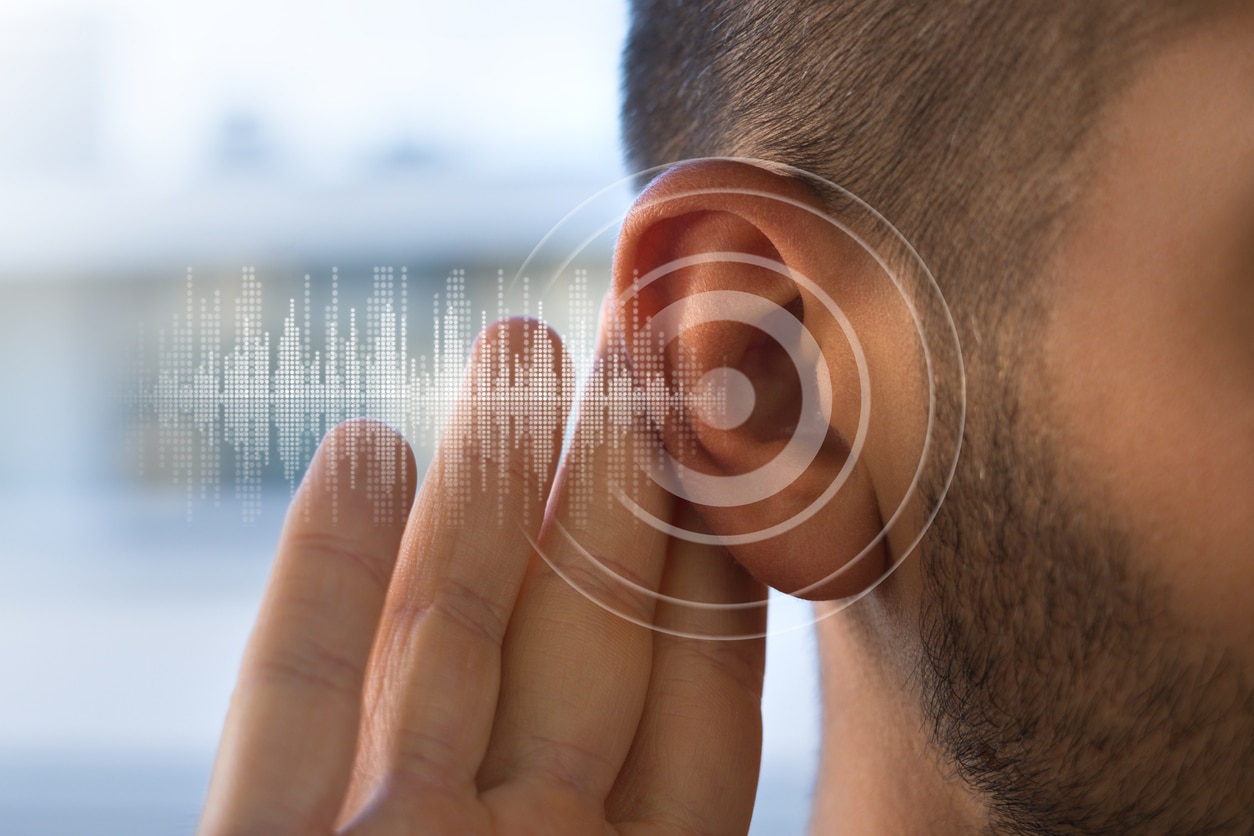Our hearing ability allows us to communicate, enjoy music and stay aware of our environment. However, as we age, our hearing naturally declines due to a condition known as presbycusis. Understanding why this happens and recognizing the signs can help manage and mitigate its effects, maintaining a better quality of life.
What is Presbycusis?

Presbycusis, also known as age-related hearing loss, is the gradual loss of hearing that occurs as people get older. It is one of the most common conditions affecting older adults, with about 5% of adults experiencing disabling hearing loss between ages 45-54. That number increases to 10% between ages 55-64. The condition often affects both ears equally and is primarily characterized by difficulty hearing high-frequency sounds, such as children’s voices or birds chirping.
Several factors contribute to presbycusis:
- Degeneration of inner ear structures: As we age the hair cells in the cochlea responsible for transmitting sound signals to the brain deteriorate. These hair cells do not regenerate, which leads to permanent hearing loss.
- Changes in blood supply: Reduced blood flow to the inner ear can also contribute to hearing loss. As we age, the small blood vessels that supply the inner ear may become less efficient.
- Accumulated noise exposure: A lifetime of exposure to loud noises, whether from work, hobbies or everyday activities, can damage the delicate structures of the inner ear.
- Genetic factors: Genetics play a role in how quickly and severely hearing loss progresses. Some people are more predisposed to age-related hearing loss due to their genetic makeup.
Steps to Take
If you suspect you or a loved one is experiencing hearing loss, there are several proactive steps you can take:
- Regular hearing check-ups: Schedule regular hearing exams with an audiologist, especially if you notice signs of hearing loss. Early detection can help manage the condition more effectively.
- Protect your hearing: Minimize exposure to loud noises by using ear protection in noisy environments like Starlight Bowl and keeping the volume at safe levels when using headphones or listening to music.
- Consider hearing aids: Modern hearing aids can significantly improve the quality of life for those with presbycusis. They amplify sounds and enhance speech clarity, making everyday interactions more manageable.
- Stay informed: Educate yourself about presbycusis and available treatments. Joining support groups or seeking counseling can also provide emotional and practical support. Take a trusted loved one with you to your first appointment with an audiologist for support.
While hearing changes over time are a natural part of aging, understanding presbycusis and taking proactive steps can help manage its impact. To learn more or schedule a hearing consultation, contact Sound Advice today.